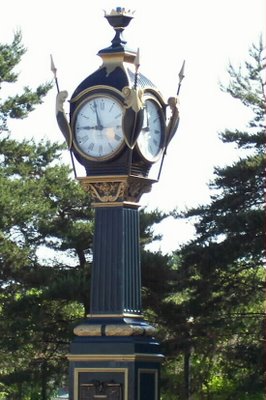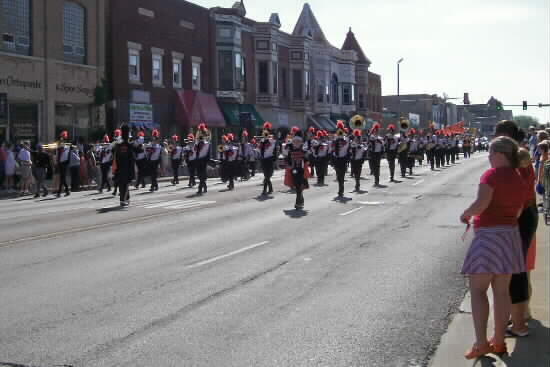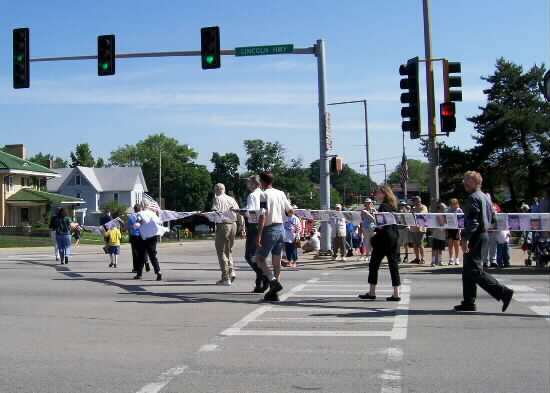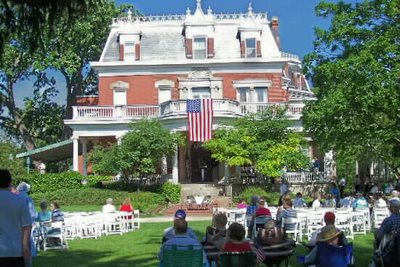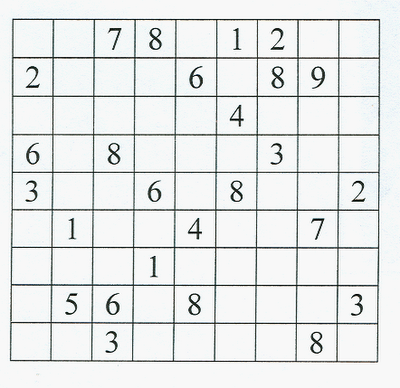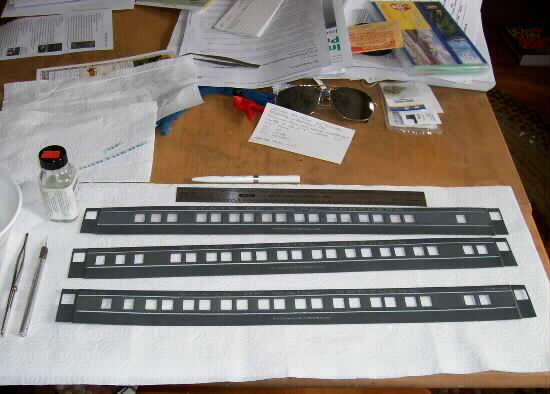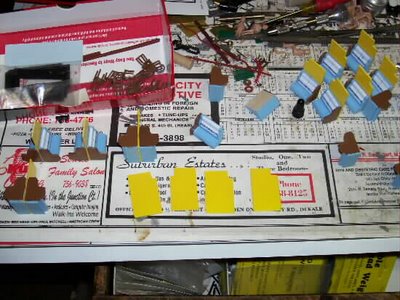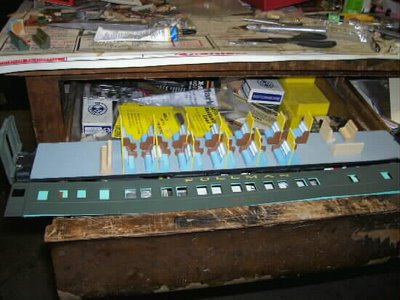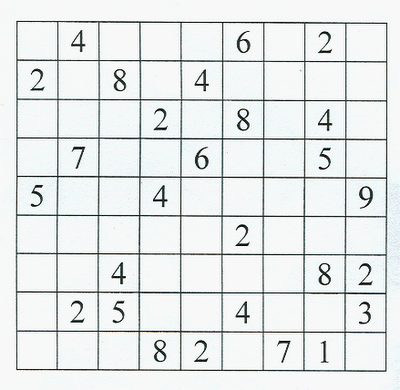The idea that some successors of the Knights Templar are hiding information that is so threatening to the Roman Catholic Church that heirs to the Inquisition will stop at nothing to kill all the keepers of the secret fails to convince. (And, if they are, why aren't there hints in the writings of Victor Hugo and the music of Claude Debussy as well as in Leonardo's paintings?) Imagine Pinkertons in the employ of Pepsi attempting to kill the keepers of Coke's secret formula ... wait, there are probably paranoid socialists that would find such a story compelling. There is, however, a simpler explanation for the troubles of the Catholic Church in Code itself, where the chief bishop of Opus Dei is about to be defunded by a successor to Pope John Paul II. In defense of his organization, he offers this (p. 416 of the hardback edition.)
Do you really wonder why Catholics are leaving the Church? Look around you, Cardinal. People have lost respect. The rigors of faith are gone. The doctrine has become a buffet line. Abstinence, confession, communion, baptism, mass -- take your pick -- choose whatever combination pleases you and ignore the rest. What kind of spiritual guidance is the Church offering?As if this exodus hasn't been going on for, oh, 2000 years? Within any organization, dissidents can raise their voice against the establishment, or they can transfer their loyalty to another organization, or start a new organization. Look at the map of New England. Each of those clusters of towns (e.g. Newton, Newton Center, Newton Highlands, West Newton, Newton Abbott, Newton Gingrich) memorializes irreconcilable differences at some town meeting clear back to the Mayflower Compact. Churches are particularly frangible. Consider the Wisconsin and Missouri Synods of the Lutheran Church. The Lutheran Church figures in a major schism now known as the Protestant Reformation, but the Synods are products of a 1961 schism within the Evangelical Lutheran (excuse the redundancy) Churches in America. Or consider the Southern and Northern, now American Baptist Conventions, the latter perhaps undergoing a schism of its own. (The Missouri Synod website offers a short rebuttal to Da Vinci Code, and this American Baptist rebuttal is as close to pronouncing anathema as the Valley Forge Baptists are likely to go.)
Or look around. Consider Chicago: more Poles than Krakow, more Catholics than the Vatican, more transactions than Zurich, more railroading than anywhere. Yet the Archdiocese of Chicago has been selling churches and consolidating schools. To raise money for a project to suppress the hidden history of the one holy apostolic and catholic church? (The lowercase usage is in the missals I've scanned at numerous weddings.) As disinformation?

And the Knights Templar had to unload Medinah Temple, A.A.O.N.M.S., in an analogous campaign? The Medinah Country Club has not been sold ... is there something hidden under the thirteenth green?
The most important idea in The Da Vinci Code is probably in a passage that will not attract the kind of commentary the assertions about the Gnostic Gospels and the medieval secret societies have. Please turn to page 207.
The millennium has recently passed, and with it has ended the two-thousand-year-long astrological Age of Pisces -- the fish, which is also the sign of Jesus. As any astrological symbologist will tell you, the Piscean ideal believes that man must be told what to do by higher powers because man is incapable of thinking for himself. Hence it has been a time of fervent religion. Now, however, we are entering the Age of Aquarius -- the water bearer -- whose ideals claim that man will learn the truth and be able to think for himself. The ideological shift is enormous, and it is occurring right now.Perhaps it is, but not in the way Code author Dan Brown would have us believe. The Da Vinci Code deals with two explanations of long standing for why Bad Stuff happens.
The first, of course, is the Divine. "Hot dry summer. Gods displeased. Must toss maiden in volcano." Today, it's the S.U.V. rather than the maiden that must be tossed, and recycling it in a steel furnace is more practical, but the basic idea is unchanged.
The second is Powerful People. Mr Brown attended Phillips Exeter and Amherst College, and one of the commentaries I'm working through suggests he's been intrigued by the fraternities and secret societies of New England. Based on the travails of the Archdiocese of Chicago and the Medinah Temple, I'm skeptical. And secret societies? The backward-ballcap set at a midwestern mid-major might enjoy easier access to cheap beer and loose women, but is that how the Holy Grail finds today's Parsifal?
The Powerful People explanation, like the Divine explanation, however, makes sense of that which is difficult to explain. William Manchester's Death of a President puts it pretty well. Dallas is the place where "they" killed President Kennedy, and a Grand Conspiracy Theory (at least two movies and a large shelf of books come to mind) makes the loss somewhat more bearable than the truth, that a down-and-outer acted alone. Sure, there were people who may have wanted Harvard's John Kennedy dead, and yes, Yale's George H. W. Bush and George W. Bush and William Jefferson Clinton and Hillary Rodham Clinton and John F. Kerry have dominated national politics, but couldn't Skull and Bones (let alone the Mob or the KGB) have located a better-connected triggerman?
The truth -- the Aquarian revelation, if you will -- is both simpler and more troubling. It's in John Holland's Hidden Order at p. 96.
Complex adaptive systems do pretty much as they damn please.The simplicity: No divine displeasure. No secretive and powerful interests. The troubling implication: Little room for Experts to Improve Things. Stuff Happens. But that ought not prevent novelists from contriving page-turners about the machinations of secretive and powerful interests. The Da Vinci Code is a novel.
